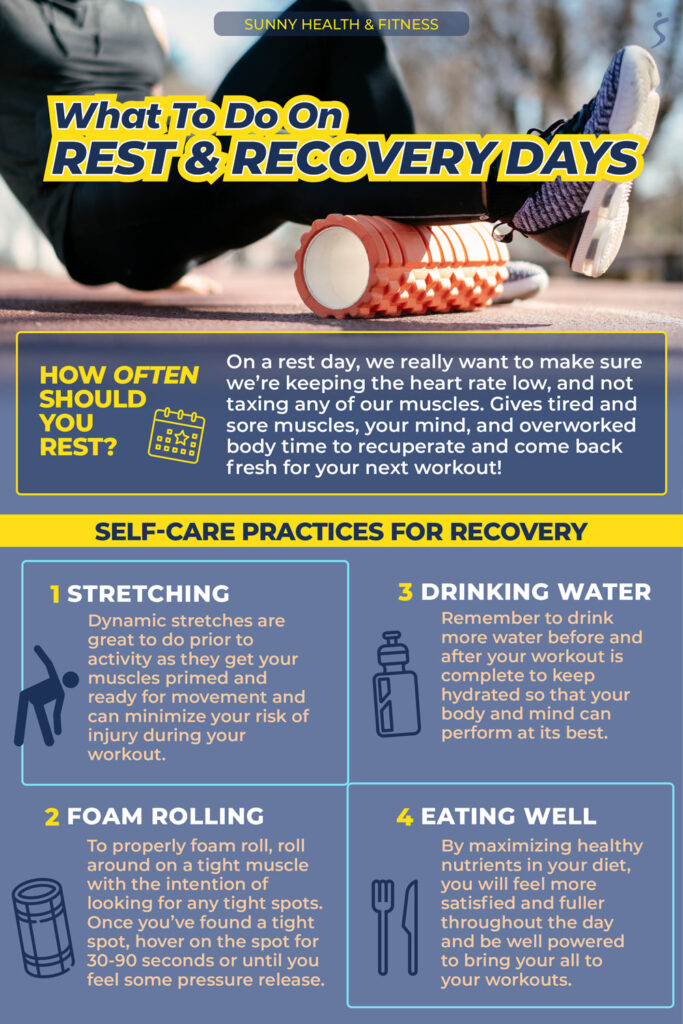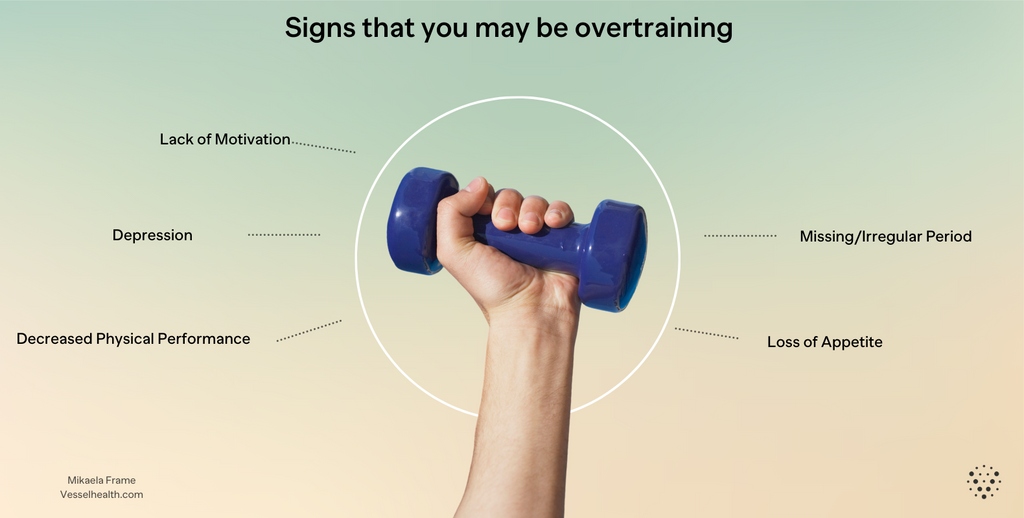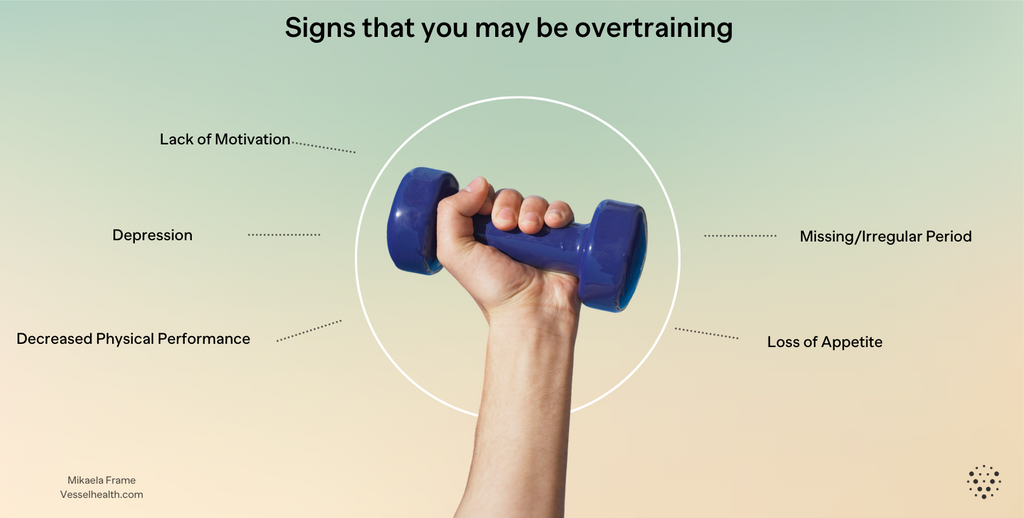You may be surprised to learn that incorporating rest days into your workout routine can actually offer numerous benefits. While it might be tempting to push yourself to the limit every day in the pursuit of fitness goals, taking regular breaks can actually enhance your overall performance and prevent burnout. By allowing your body time to recover and repair, rest days can improve muscle growth, increase energy levels, boost immune function, and reduce the risk of injuries. So, before you hit the gym again, consider the importance of rest and prioritize your well-being in order to achieve long-term success in your fitness journey.
Improved Performance
Rest days are an essential component of any effective workout routine as they play a crucial role in enhancing your overall performance. By incorporating regular rest days into your exercise regimen, you can prevent the detrimental effects of overtraining. Overtraining occurs when you push your body beyond its limits without giving it adequate time to recover. This can lead to decreased performance, fatigue, and an increased risk of injury. By taking rest days, you allow your body to recharge, ensuring that you are always operating at your optimal level.
In addition to preventing overtraining, rest days also decrease your risk of injury. When you engage in intense physical activity, your muscles and joints undergo stress and strain. This can make them more susceptible to injuries such as strains, sprains, or even fractures. By taking regularly scheduled rest days, you give your body the opportunity to repair and strengthen these vulnerable areas, reducing the likelihood of injuries.
Another significant benefit of incorporating rest days into your workout routine is the increased muscle strength it promotes. During rest days, your muscles have the chance to rebuild and repair themselves. This physiological process is known as muscle hypertrophy and leads to stronger and more resilient muscles. By allowing your muscles time to recover and grow, you pave the way for continuous progress and improved strength in the long term.
Enhanced Recovery
One of the primary advantages of incorporating rest days into your workout routine is the enhanced recovery it provides. Rest days offer a chance for your body to reduce muscle soreness, which is a common side effect of intense exercise. When you engage in challenging workouts, tiny tears occur in the muscle fibers, resulting in the stiffness and discomfort you may feel afterwards. However, by taking a rest day, you give your body the opportunity to repair these muscle fibers, reducing soreness and allowing you to feel more comfortable and refreshed.
Rest days also play a crucial role in improving muscle repair. During exercise, your body undergoes a process known as protein synthesis, where new proteins are produced to repair and strengthen damaged muscle fibers. Taking rest days allows this repair process to occur more efficiently, assisting in the restoration and growth of your muscles. By giving your body sufficient time to recover, you enable improved muscle repair, leading to enhanced overall physical performance.
In addition to muscle repair, rest days also contribute to the restoration of energy levels. Intense workouts can deplete your body’s energy stores, leaving you feeling drained and fatigued. However, by incorporating regular rest days into your routine, you provide your body with the opportunity to replenish its energy reserves. This restoration of energy levels ensures that you will be able to tackle future workouts with the vigor and enthusiasm necessary for optimal performance.

Mental and Psychological Benefits
While the physical benefits of rest days are significant, their impact on your mental and psychological well-being should not be underestimated. Incorporating regular rest days into your workout routine can help reduce stress and anxiety. Intense physical activity releases endorphins, which are known as “feel-good” hormones. However, excessive exercise without adequate rest can lead to heightened stress levels. By taking rest days, you give your body a chance to produce and restore these hormones, leading to a decrease in stress and anxiety levels.
Alongside stress reduction, rest days also contribute to improved mood and motivation. When you continuously push yourself without allowing your body time to recover, you may experience a decline in your overall mood and motivation levels. By incorporating rest days, you break this cycle of repetitive strain, allowing yourself the chance to recharge mentally. This replenishment of energy and positive mindset translates into improved mood and motivation, enhancing your overall training experience.
Moreover, rest days can significantly enhance focus and concentration. Intense workouts require mental focus and concentration, allowing you to perform at your best. However, prolonged periods without rest can result in mental fatigue and decreased cognitive functioning. By scheduling regular rest days, you allow your brain time to rest and recharge, ensuring that you can maintain optimal focus and concentration during your workouts. This mental clarity boosts your ability to perform exercises correctly and maximize the benefits of your training sessions.
Physical Benefits
Incorporating rest days into your workout routine offers various physical benefits that significantly contribute to your overall well-being. One of the primary advantages is decreased inflammation. Intense exercise can cause inflammation in the body due to the release of inflammatory markers and the stress placed on the muscles and joints. By taking rest days, you allow your body time to reduce inflammation naturally, promoting faster recovery and reducing the risk of chronic inflammation-related diseases.
Rest days also play a crucial role in improving immune system function. Intense training places significant stress on the body, potentially leading to a temporary decrease in immune response. However, by incorporating rest days, you allow your immune system to recover and strengthen, leading to improved defense mechanisms against illnesses and infections. A robust immune system ensures that you can maintain consistent training and reduces the chances of succumbing to illnesses that could hinder your progress.
Furthermore, rest days are essential for improving sleep quality. Intense physical activity can sometimes disrupt sleep patterns and make it challenging to achieve deep, restorative sleep. By incorporating rest days, you give your body a chance to recalibrate and improve sleep quality. Restful sleep is crucial for muscle repair, hormonal balance, and overall physical and mental well-being. By prioritizing rest days, you can enjoy better sleep, leading to improved recovery and more efficient training.

Muscle Growth and Repair
Rest days play a crucial role in facilitating muscle growth and repair, making them indispensable for individuals seeking to maximize their training adaptations. Optimal protein synthesis is a fundamental process that occurs during rest days. During intense workouts, muscle fibers are broken down, and protein synthesis occurs when the body repairs and rebuilds these fibers. By taking rest days, you allow sufficient time for protein synthesis to occur, aiding in muscle recovery and growth.
Rest days also contribute to the formation of new muscle fibers, a process known as myogenesis. When you engage in challenging workouts, tiny micro-tears occur in the muscle fibers. These micro-tears are necessary for stimulating muscle growth, as the body repairs them by forming new muscle fibers. By incorporating rest days, you provide your body with the opportunity to build and strengthen these new muscle fibers, leading to overall muscle growth and increased strength over time.
Another crucial aspect of rest days is the maximization of training adaptations. During exercise, your body experiences various physiological changes, such as increased cardiovascular capacity, improved muscular endurance, and enhanced flexibility. However, these adaptations occur not during the workout itself, but during the rest periods. By incorporating rest days into your training routine, you allow your body to fully adapt to the demands of your workouts, ensuring that you can continue to progress and achieve your fitness goals.
Prevention of Plateaus
One of the often-underestimated benefits of incorporating rest days into your workout routine is the prevention of plateaus. Training plateaus occur when you reach a performance plateau, where your progress seems to stagnate despite consistent effort. By taking rest days, you can avoid this common obstacle and continue to make progress in your fitness journey.
Rest days play a crucial role in avoiding training plateaus by allowing your body to recover from the strain of intense workouts. Allowing your muscles and joints time to repair ensures that you can continue to challenge yourself during future training sessions, promoting constant improvement. By scheduling regular rest days, you provide your body with the necessary recovery time to break through plateaus and achieve new heights in your fitness journey.
In addition to avoiding training plateaus, rest days also play a role in preventing performance plateaus. Performance plateaus occur when you reach a point where you no longer see improvements in your overall performance despite consistent training. By incorporating rest days, you allow your body to recharge and restore its energy levels. This restoration of energy ensures that you can consistently perform at your best, reducing the chances of reaching a performance plateau and promoting continuous progress.

Maintenance of Hormonal Balance
Rest days are crucial for the maintenance of hormonal balance, which is essential for overall health and well-being. One of the hormones affected by rest days is cortisol, commonly known as the stress hormone. Intense exercise can temporarily elevate cortisol levels, which, when sustained, can lead to negative health effects such as impaired immune function, insulin resistance, and increased risk of injuries. By incorporating rest days, you allow cortisol levels to return to normal, ensuring hormonal balance and reducing the risk of these adverse effects.
Another hormone affected by rest days is testosterone, which plays a vital role in muscle growth and repair. Intense physical activity temporarily increases testosterone levels. However, prolonged periods without rest can lead to a decrease in testosterone levels, negatively impacting muscle recovery and growth. By taking rest days, you maintain optimal testosterone levels, promoting muscle growth and repair, and ensuring continual progress in your fitness journey.
Rest days also contribute to the balance of thyroid hormones. Thyroid hormones, such as thyroxine (T4) and triiodothyronine (T3), play a crucial role in regulating metabolism, energy production, and overall well-being. Intense exercise can sometimes disrupt the delicate balance of these hormones, leading to various health issues such as fatigue, weight gain, or difficulty in losing weight. By incorporating rest days, you allow your body to restore and maintain the optimal balance of thyroid hormones, ensuring proper functioning of your metabolism and overall health.
Long-term Sustainability
Incorporating rest days into your workout routine promotes long-term sustainability by preventing burnout. Pushing yourself too hard without adequate rest can lead to physical and mental exhaustion, commonly known as burnout. Burnout can have detrimental effects on your motivation, enthusiasm, and overall well-being, potentially leading to a complete loss of interest in exercise. By prioritizing rest days, you give yourself the necessary breaks to prevent burnout and ensure continued engagement in an active lifestyle.
Rest days also promote the promotion of an active lifestyle beyond your workout routine. Incorporating regular rest days allows you to engage in other activities that you enjoy, such as hobbies or spending quality time with loved ones. These activities contribute to your overall happiness and well-being, enhancing your life outside of the gym. By maintaining this balance between rest and other activities, you pave the way for sustainable long-term fitness goals.
Moreover, rest days assist in the reduction of exercise dependence. While exercise is a vital component of a healthy lifestyle, excessive exercise without adequate recovery can lead to an unhealthy dependency on physical activity. By incorporating rest days, you break the cycle of exercise dependence and promote a more balanced and sustainable approach to fitness. Rest days offer a chance to recharge, reassess your goals, and ensure that exercise remains a positive and enjoyable part of your life.

Improvement in Sleep and Recovery
One of the significant benefits of incorporating rest days into your workout routine is the improvement in sleep quality and overall recovery. Rest days promote deep sleep, also known as slow-wave sleep or stage 3 sleep. Deep sleep is essential for muscle repair and growth, as it is during this stage that the body releases growth hormone, which aids in tissue repair and regeneration. By incorporating rest days, you allow your body to spend adequate time in deep sleep, ensuring optimal recovery and maximizing the benefits of your workouts.
Additionally, rest days contribute to the repair of muscle tissues during sleep. During intense workouts, muscle fibers break down, and the body repairs them during periods of rest, particularly during sleep. By taking rest days, you provide your body the opportunity to repair and rebuild these muscle tissues, leading to improved muscle strength and overall physical performance.
Moreover, rest days enhance overall restfulness. When you engage in regular exercise, your body becomes accustomed to physical exertion, and rest days provide a break from this routine. By allowing your body to rest fully, you promote a sense of restfulness that carries over into your daily life. Enhanced overall restfulness leads to improved recovery, reduced stress, and increased energy levels, ensuring that you can approach your workouts with renewed vigor and enthusiasm.
Customization of Training
Incorporating rest days into your workout routine allows for the customization of your training, ensuring that it aligns with your specific goals and needs. One way to customize training schedules is through periodization planning. Periodization involves dividing your training into distinct phases, each with a specific focus. By incorporating rest days strategically within these phases, you can optimize recovery and performance, ensuring that you are consistently making progress towards your goals.
Another aspect of customization is the individualization of rest days. Every individual’s body and training needs are unique, and what works for someone else may not necessarily work for you. By tailoring rest days to your specific requirements, such as areas that need extra recovery or personal preferences in terms of activity levels, you can optimize your training program. Individualization ensures that your rest days are effective and efficient in promoting recovery and supporting your overall fitness journey.
Finally, tailoring rest days to specific goals is essential in customization. Depending on your fitness goals, you may require different ratios of training to rest days. For instance, if your goal is muscle growth, you may benefit from a training program that includes more rest days to allow for optimal muscle recovery and growth. On the other hand, if your goal is to improve cardiovascular endurance, you may require fewer rest days to maintain consistent cardiovascular training. By customizing rest days to align with your specific goals, you ensure that your training program is tailored to maximize your desired outcomes.
In conclusion, incorporating rest days into your workout routine yields numerous benefits that contribute to improved performance, enhanced recovery, mental and psychological well-being, and long-term sustainability. From preventing overtraining and injuries to optimizing muscle growth and repair, rest days play a crucial role in supporting your fitness journey. By customizing your training program, balancing intense workouts with adequate rest, and prioritizing sleep and recovery, you enable your body and mind to excel, ensuring that you can achieve and maintain optimal health and fitness.



